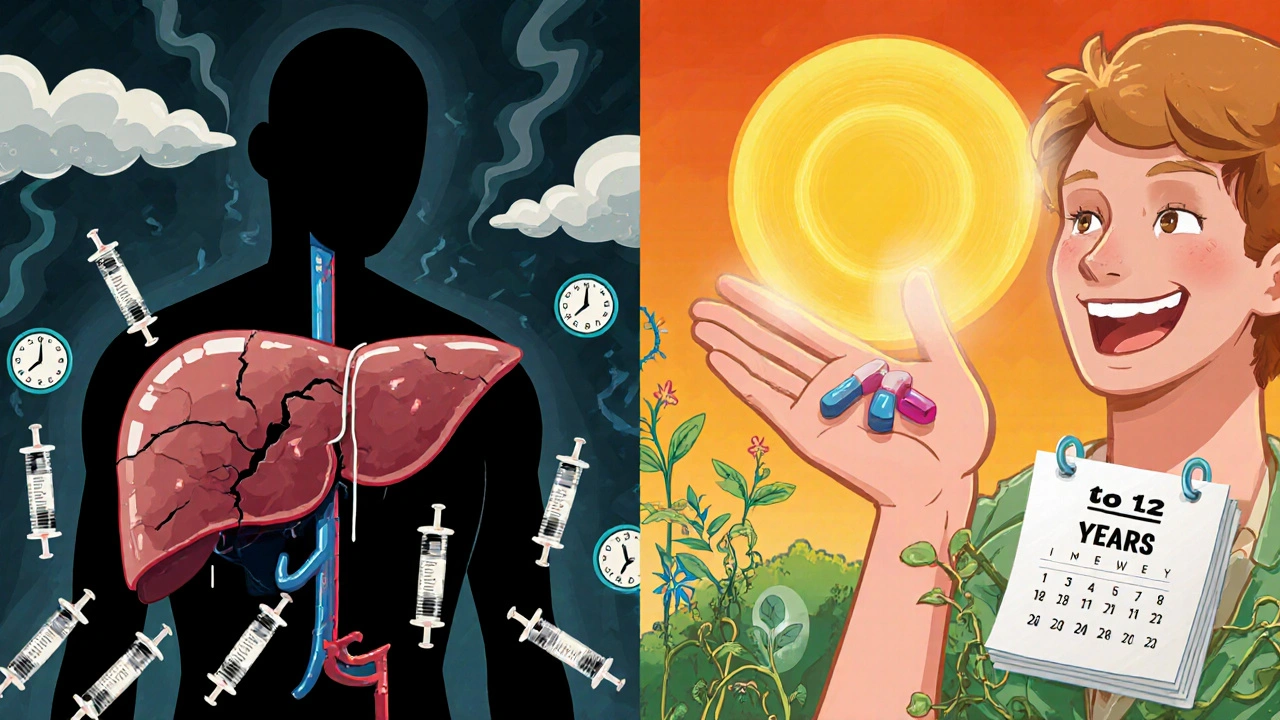HCV Treatment: What Works, What to Avoid, and How to Stay Safe
When it comes to HCV treatment, the medical approach to curing hepatitis C virus infection. Also known as hepatitis C therapy, it has shifted from harsh, months-long regimens to simple, cure-focused pills taken for just 8 to 12 weeks. Hepatitis C isn’t just a liver problem—it’s a silent threat that can lead to cirrhosis, liver cancer, or death if left untreated. But here’s the good news: today’s treatments cure over 95% of people, often with no side effects. You don’t need injections. You don’t need to feel awful. You just need the right medication, taken as directed.
The real game-changers are direct-acting antivirals, a class of oral drugs that target specific parts of the hepatitis C virus. These include sofosbuvir, ledipasvir, velpatasvir, and others. Unlike old interferon treatments, they don’t wreck your immune system. They lock onto the virus, stop it from copying, and let your body clear it out. This isn’t theory—it’s what’s in every major guideline from the WHO and CDC. And yes, these drugs are available as generics now, making them affordable even without insurance.
But here’s where things get risky: not every online pharmacy is real. You’ll see ads for "cheap HCV treatment" or "miracle cures"—some even claim to work without a prescription. Those are scams. Fake pills can contain nothing, or worse, toxic chemicals. Real HCV treatment requires a diagnosis first. You need blood tests to know your genotype, liver health, and whether you’ve had the virus before. A doctor doesn’t just hand out pills—they check for drug interactions, especially if you’re on other meds like statins or blood thinners. And if you’re thinking of buying generic antivirals online, know this: some are legitimate, but only if they come from a licensed pharmacy with real documentation. GrantPharmacy.com doesn’t sell drugs, but the posts below show you how to spot real vs. fake suppliers, understand insurance coverage, and avoid dangerous alternatives.
There’s also a hidden layer most people miss: HCV treatment doesn’t end when the pills run out. You still need follow-up tests to confirm the virus is gone. And if you’ve had liver damage, you still need monitoring—even after cure. That’s why posts on this page cover everything from drug interactions and side effects to how genetic factors affect treatment success. You’ll find real comparisons between drug combinations, what to expect during treatment, and how to handle insurance denials. You’ll also see warnings about outdated treatments still being pushed by clinics that haven’t updated their protocols. This isn’t about guessing. It’s about knowing exactly what works, what doesn’t, and how to protect yourself in a market full of noise.

Hepatitis C Cure Rates With Direct-Acting Antivirals: What You Need to Know
- by Colin Edward Egan
- on 17 Nov 2025
Hepatitis C can now be cured in 8-12 weeks with over 95% success using direct-acting antivirals. Learn how DAAs work, who benefits most, and why so many still go untreated.
